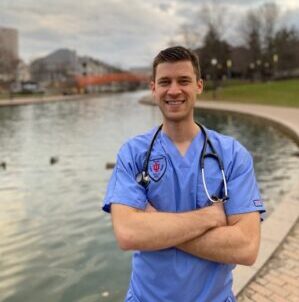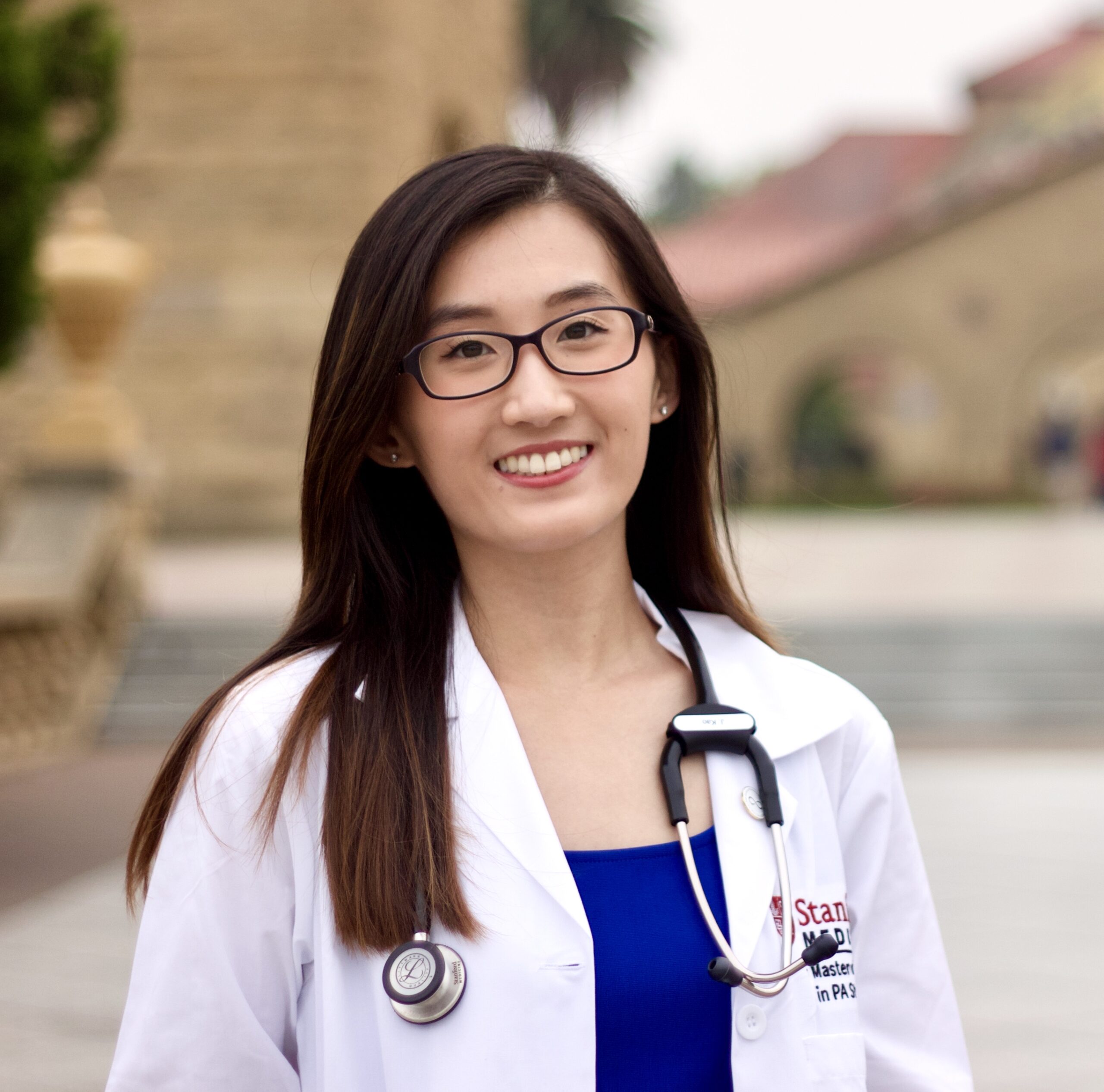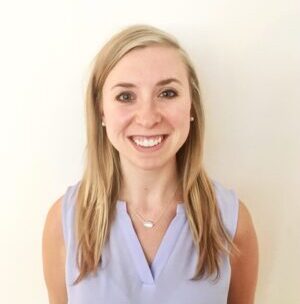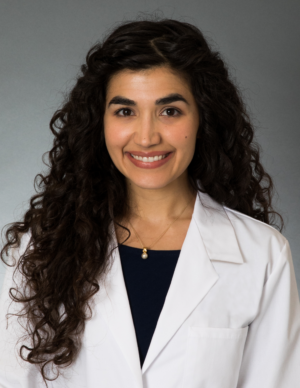Purdue HHS graduates devote themselves to a lifetime of learning as physician assistants
Written by: Rebecca Hoffa, rhoffa@purdue.edu
While many Purdue University College of Health and Human Sciences (HHS) alumni have pursued medical school and become doctors, there are many other pathways to providing healthcare outside of becoming a physician. Physician assistants (PA) play an important role on the healthcare team while also having a unique opportunity to explore a variety of medical specialties during their career.
For many Purdue HHS alumni PAs, the profession’s flexibility to continue learning and help a variety of patients are especially appealing, and HHS opens the door to many interest areas that lead to PA school, including health and kinesiology, nutrition science, health sciences, public health and more.
Finding a fit in healthcare

Dan Powers, Purdue Health and Kinesiology alumnusPhoto provided
Department of Health and Kinesiology (HK) alumnus Dan Powers began his major in applied exercise and health on a physical therapy track, but the more he got into the curriculum, the more he gravitated toward the department’s physiology classes, which led him to pursue PA school after graduating from Purdue in 2019. Now, Powers is entering his final year of PA school at Indiana University-Purdue University Indianapolis (IUPUI), and he credits his Purdue courses and academic advisors with helping him reach his goals.
“It is a really rigorous, difficult process to get to PA school, and it’s almost impossible to do it on your own, so if you acknowledge that you need help and you get help, it makes the process much easier, and once you get there, it’s definitely worth it,” Powers said.
One of the most memorable parts of his education at Purdue was the hands-on learning experiences he received in his classes, particularly in HK 36800 (Exercise Physiology I), which was taught at the time by Darlene Sedlock, retired associate professor of health and kinesiology.
“The labs were amazing,” Powers said. “We got to apply the physiology to the exercise, and that’s stuff that I still daydream about, wishing I could go back. Now that I understand it so much more, it would be even more beneficial, but it was so interesting to me then.”

Jonica Kao, Purdue Nutrition Science alumnaPhoto provided
Jonica Kao, a 2018 Department of Nutrition Science (NUTR) alumna and PA student in the Stanford University School of Medicine, came to Purdue on the registered dietitian track. She heard about the PA career path from her academic advisor as a sophomore and decided to pursue it, but Nutrition Science also catered to becoming a PA.
“Thankfully my major — dietetics — was already really science-heavy, so I didn’t have to add any additional classes or switch majors to fulfill most of the PA program pre-requisites,” Kao said.
For Kao, NUTR offered a distinct perspective toward healthcare by focusing on nutrition’s role in chronic diseases.
“There’s not a lot of nutrition education being taught in medical school, so I think having that knowledge is really beneficial as I’m going through PA school right now,” Kao said. “I’m really thankful for the versatility my Purdue nutrition degree has provided me.”
Kao also noted that becoming a PA offered the best balance for her life, from the ability to explore new medical specialties to allowing her to prosper in her career and personal life.
“Had I chosen the MD route, I think I would have been burnt out by the time I finished residency, and I wanted a career that would be challenging and full of learning opportunities, but I also wanted more of a balance for personal well-being,” Kao said.
Making a difference

Brianna Bower, Purdue Health Sciences alumnaPhoto provided
Brianna Bower, a 2016 School of Health Sciences (HSCI) alumna, knew many years before coming to Purdue that she wanted to become a PA. Now, she is a gastroenterology PA at IU Health in Indianapolis and vice president of the Indiana Academy of PAs. Bower noted that becoming a PA requires similar prerequisites to medical school, but HSCI’s pre-PA program allows students to go beyond just specializing in a science to become a well-rounded PA.
“Being a physician assistant isn’t always as easy as going by the textbook and using the things you memorize in the science classes,” Bower said. “Patients often present in ways that force you to treat medicine as an art. Not only do you have to know the science, but you also have to learn to communicate well and using problem-solving skills in order to provide adequate patient care.”
One of Bower’s most valuable experiences at Purdue was her involvement in Global Medical Brigades when she had the opportunity to participate in a medical mission trip to Honduras. This experience introduced her to the collaboration involved in the field and gave her exposure to providing healthcare to underserved communities.
“I went on the trip with students on all different tracks, including those wanting to go into nursing or pharmacy, so getting the opportunity to participate in those interprofessional relationships all the way back in college was super important,” Bower said. “It gave me great insight into how those aspects of medicine all work together in today’s world and prepared me for my current role.”

Emily Lutz, Purdue Public Health alumnaPhoto provided
Unlike Bower, Emily Lutz, a 2016 Department of Public Health (PUBH) alumna and PA at Forefront Dermatology in Bloomington, Indiana, discovered the PA profession much later in her Purdue career. She pursued a physical therapy (PT) track in public health and worked at a PT clinic to gain experience until her senior year at Purdue when she shadowed a friend who was in PA school. Lutz decided that she was more interested in becoming a PA. As someone who thrives in a space where she is constantly learning, Lutz noted that the PA profession was perfect for her.
“Without exposure into other fields of medicine, I would have never realized where my true passions and interests lied,” Lutz said. “Medicine is much different in practice, and I think hands-on experience is very insightful.”
Because dermatology field is competitive and can be difficult to enter as a new graduate, Lutz didn’t anticipate the level of autonomy she’d have right away. It has allowed her to grow professionally and gain in-depth knowledge about what it takes to successfully run a medical clinic. Prior to practicing autonomously, Lutz trained with her collaborating physician for several months. Then, she was entrusted to work independently in two separate clinics.
“It’s very humbling and very rewarding,” Lutz said. “I’m learning and growing in the position every day. I love it.”

Paulina Segovia, Purdue Nutrition Science alumnaPhoto provided
Paulina Segovia, a 2015 NUTR alumna and PA at Tepeyac Health in Denver, Colorado, didn’t become a PA until later in her career. She started out as a registered dietitian, but after being in the profession for a few years, she decided she wanted to have more of a voice on the healthcare team and went back to school to become a physician assistant. She appreciates the PA field because it allows her to spend more time with each of her patients, and PA school prepared her with the skills needed to best serve them.
“Having a background in understanding how to empathize and communicate with your patients makes me love my profession so much more compared to other professions,” Segovia said. “I live for helping my patients.”
For Purdue students who may wish to pursue PA school, Segovia said her biggest advice is to do some soul searching to make sure it is the right fit before entering into the rigorous but rewarding process.
“Make sure that you’re doing it for the right reasons,” Segovia said. “Start understanding now why it is that you want to do this, and be open to any opportunity, whether it is shadowing a PA or volunteering or starting to think of where you’re going to get your patient-care hours, and make those hours count.”